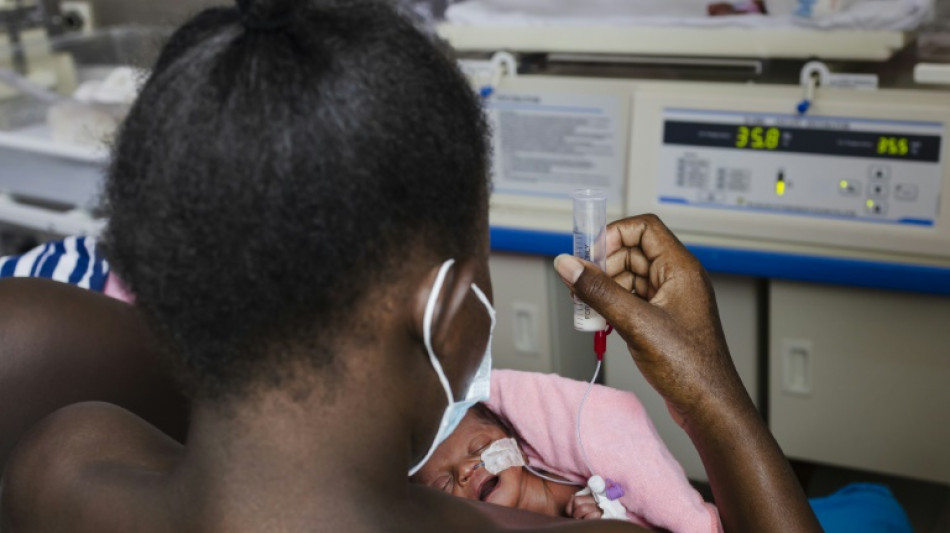
SCS
0.0200


Surrounded by incubators, a red tube snaking into her tiny nose, four-day-old Grace-Ella is being fed donated breastmilk at the only facility in Kenya that offers the life-giving service.
The breastmilk bank at Pumwani Maternity Hospital is one of very few across sub-Saharan Africa, and is especially helpful for premature babies, of which roughly 134,000 are born each year in Kenya.
Mothers who give birth prematurely are often unable to produce breastmilk and must rely on formula, which can be less nutritious and increases the risk of infection, especially since water is often contaminated.
The milk bank in Nairobi, established in 2019 with the support of British aid money and PATH, an NGO, allows babies like Grace-Ella to benefit from the generosity of others.
"It was super-exciting," her mother Margaret Adhiambo, 28, told AFP, adding she had not heard of the programme before she delivered prematurely at 30 weeks.
"Before I accepted, I was a bit sceptical because it gave me some feeling of guilt like I could not give my daughter my own breastmilk."
But "it helped me because my daughter didn't starve, at least she got some food," she added.
- 'Good to help' -
Underweight babies face a daunting array of risks and breastmilk can, quite literally, tip the scales in their favour.
"When we feed them human milk we find they are growing faster compared to a baby who is getting formula," said Muthoni Ogola, the doctor heading the programme.
Yet the World Health Organization (WHO) says fewer than half of all infants worldwide are exclusively breastfed.
A key advantage of breastmilk is the antibodies passed to the infant, said Pumwani nurse Hannah Wangeci Maina.
She moves with the efficiency needed for a maternity ward that cares for at least 90 mothers and babies at a time.
"We usually have many mothers lining up to receive the expressed breastmilk," she said.
On a recent visit by AFP, she helped first-time mother Esther Wanjiru, 22, through the process of donating.
Wanjiru was given counselling and tests for diseases including HIV and hepatitis before sitting to pump.
The milk was then tested, both pre- and post-pasteurisation, and then frozen, allowing it to be stored for up to a year.
"It feels good to help... It sort of feels like a massage," Wanjiru told AFP with a shy grin.
- Funding shortfall -
For the hospital team, it is frustrating that they only have enough equipment to provide milk to hospitalised children on the ward, as well as occasional donations to two other hospitals.
It is a much cheaper option than formula, but the equipment is expensive, said hospital CEO Christine Kiteshuo.
"Some of this equipment can only be found in Europe (or) the US, so it becomes a problem for us to procure," Kiteshuo told AFP.
The hospital would love to help mothers out in the community, especially since many live in informal settlements without fridges or clean running water.
"That becomes one of the challenges that we experience right now -- that we cannot help the mothers outside the facility," said Kiteshuo.
V.Liu--ThChM